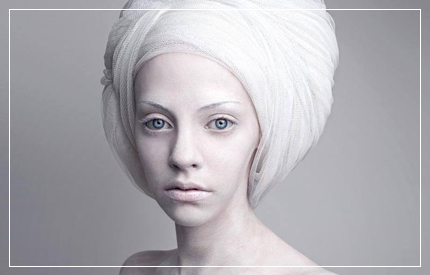Opera Review: Dido & Aeneas
Date: 13/04/2016
Gig Review

An incomplete seventeenth century masterpiece becomes a complete near-masterpiece in the hands of a dedicated, playful and hugely gifted musical ensemble. Sestina's adaptation of Henry Purcell's Dido & Aeneas is compelling, alluring, and gently devastating, a triumph for the power of the collective in an almost full house worthy of its presence.
The performance I attend is in Derry-Londonderry's Glassworks building. Its high ceilings and chapel-esque acoustics are the perfect fit for the sensuous booms, echoes, keys, strings, pain and travails soon to be laid out before us, with chorus, orchestra and musical director Mark Chambers adapting nicely to the relatively medium-sized stage.
Dido & Aeneas, in itself, is rather open to questions. With no contemporary manuscripts surviving from the date of composition, and with neither of the earliest musical copies containing music for the prologue, Chambers has selected music from Matthew Locke and Jean Baptiste Lully to create a strong and steady prologue of his own.
Its effect is immediate, Aaron O'Hare's dominant baritone making its presence felt from the very first note. Horror and desperation are commendably communicated by a chorus sweetly in sync with Chambers' direction and Bridget Madden's choreography. Madden herself will later command the stage through tempestuous and graceful dance with Ryan O'Neill, her presence both on and off the stage filling the cast with life. Hisses everywhere create a threatening atmosphere around the central performers, notably a deeply menacing Rich Moore and the mysterious, nymph-like Sarah Rennix and Emer Acton. But then, fear gives way to awe at the sight of and sound from Rebecca Murphy's Venus, for both cast and audience. In a matter of minutes we have been both entranced and repulsed by the light and darkness within life and love.
Similarly, light and darkness permeate the opening of Dido & Aeneas itself, the red light at the back of the Glassworks both a shepherdess's delight and warning about what will come. The brightness of Dido's clothing suggests joy, the expression on her face, grief. As portrayed by Laura Lamph, Dido is restrainedly tearful, a figure of reluctant strength clinging on to the tiniest of hopes. Lamph's performance is characterised by dominance, desire and despondence, a sharply telling contrast to the strength and defiance of Brian McAlea's Aeneas.
Their relationship will be the centre of the opera performed, yet it is not their chemistry that dazzles - despite strong showings from both Lamph and McAlea - but the chemistry between the entire cast and orchestra. This truly is a team effort, defined by voracious vocals and swift, elegant movement. Emotion simply flows from the instruments and voices like a gentle wave at high tide, as both a complement and alternative to the creepiness in Locke.
If I had to really single out anyone, it would be Fiona Flynn. Her cheery, charming and fluttery delivery, combined with impressive soprano staccato, is ideal for the drive and optimism in Belinda. She is equally at home with darkness, facing Dido's rather abrupt death - in the context of the entire production - with both pain and dignity. She, and Lamph, help salvage 'Dido's Lament' - following the cheer of the sailors preceding it, the sudden shift to gloom can't help but feel slightly awkward. Nonetheless, the closing scene is beautifully played, the chorus gradually making their way off the stage to leave us with the haunting image of the dead Dido in the spotlight.
Â
We often talk of the need for leaders. Yet there are no real leaders or winners in the temperamental world of Dido & Aeneas, a powerful scenario and production fit for, and superbly performed by, a team.
Simon Fallaha
Dido & Aeneas was staged by Sestina and was performed at the Glassworks in L’Derry, the Ulster Hall in Belfast and Church of the Sacred Heart in Newry.
The performance I attend is in Derry-Londonderry's Glassworks building. Its high ceilings and chapel-esque acoustics are the perfect fit for the sensuous booms, echoes, keys, strings, pain and travails soon to be laid out before us, with chorus, orchestra and musical director Mark Chambers adapting nicely to the relatively medium-sized stage.
Dido & Aeneas, in itself, is rather open to questions. With no contemporary manuscripts surviving from the date of composition, and with neither of the earliest musical copies containing music for the prologue, Chambers has selected music from Matthew Locke and Jean Baptiste Lully to create a strong and steady prologue of his own.
Its effect is immediate, Aaron O'Hare's dominant baritone making its presence felt from the very first note. Horror and desperation are commendably communicated by a chorus sweetly in sync with Chambers' direction and Bridget Madden's choreography. Madden herself will later command the stage through tempestuous and graceful dance with Ryan O'Neill, her presence both on and off the stage filling the cast with life. Hisses everywhere create a threatening atmosphere around the central performers, notably a deeply menacing Rich Moore and the mysterious, nymph-like Sarah Rennix and Emer Acton. But then, fear gives way to awe at the sight of and sound from Rebecca Murphy's Venus, for both cast and audience. In a matter of minutes we have been both entranced and repulsed by the light and darkness within life and love.
Similarly, light and darkness permeate the opening of Dido & Aeneas itself, the red light at the back of the Glassworks both a shepherdess's delight and warning about what will come. The brightness of Dido's clothing suggests joy, the expression on her face, grief. As portrayed by Laura Lamph, Dido is restrainedly tearful, a figure of reluctant strength clinging on to the tiniest of hopes. Lamph's performance is characterised by dominance, desire and despondence, a sharply telling contrast to the strength and defiance of Brian McAlea's Aeneas.
Their relationship will be the centre of the opera performed, yet it is not their chemistry that dazzles - despite strong showings from both Lamph and McAlea - but the chemistry between the entire cast and orchestra. This truly is a team effort, defined by voracious vocals and swift, elegant movement. Emotion simply flows from the instruments and voices like a gentle wave at high tide, as both a complement and alternative to the creepiness in Locke.
If I had to really single out anyone, it would be Fiona Flynn. Her cheery, charming and fluttery delivery, combined with impressive soprano staccato, is ideal for the drive and optimism in Belinda. She is equally at home with darkness, facing Dido's rather abrupt death - in the context of the entire production - with both pain and dignity. She, and Lamph, help salvage 'Dido's Lament' - following the cheer of the sailors preceding it, the sudden shift to gloom can't help but feel slightly awkward. Nonetheless, the closing scene is beautifully played, the chorus gradually making their way off the stage to leave us with the haunting image of the dead Dido in the spotlight.
Â
We often talk of the need for leaders. Yet there are no real leaders or winners in the temperamental world of Dido & Aeneas, a powerful scenario and production fit for, and superbly performed by, a team.
Simon Fallaha
Dido & Aeneas was staged by Sestina and was performed at the Glassworks in L’Derry, the Ulster Hall in Belfast and Church of the Sacred Heart in Newry.
More info : http://www.sestinamusic.com




































